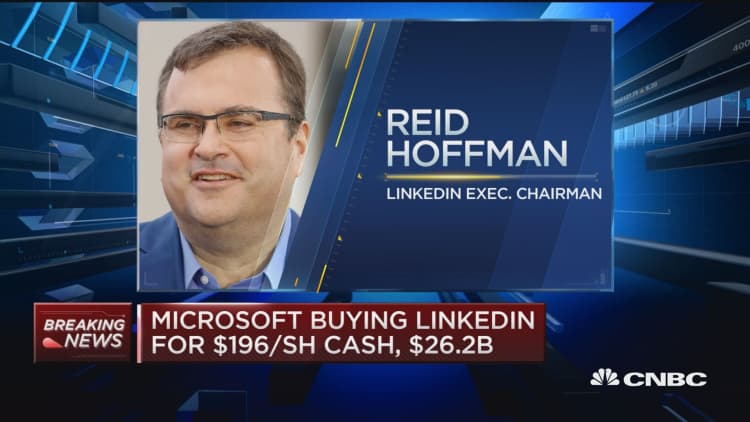
Small banks are taking a big bite out of Wall Street's top line, once again.
Two boutique banks elbowed aside competitors to lay claim to millions in fees on LinkedIn's $26.2 billion sale to Microsoft, announced Monday morning. They are: Qatalyst Partners and Allen & Co., and they managed to disrupt Wall Street's relationship with Silicon Valley once again. Neither bank was immediately available to comment.
It's a big payday for a pair of banks with just a few dozen staffers. The banks will divvy up between $40 million and $45 million for their work helping LinkedIn secure a premium of nearly 50 percent on its stock price, said Jeffrey Nassof, director at mergers and acquisitions consulting firm Freeman & Co.
"It's the biggest tech deal of the year," he said.
Wall Street has already seen deals fall by a double-digit percentage to start 2016 compared to last year, putting pressure on big banks' revenue. As part of the boutiques' growth, small banks like Qatalyst or Ducera Partners (which, still in its infancy, elbowed big banks aside last month to lay claim to the biggest deal of the year) have claimed a bigger portion of M&A revenue in the years after the financial crisis, according to Dealogic.
Further, since June of last year, 68 percent of deals valued at $10 billion or more had a boutique bank advising, Nassof said. They're hitting Wall Street where it hurts the most.
It's a stark reminder for Wall Street that its clout only goes so far, and that boutiques are increasingly honing in on big banks' business. Earlier this year, Qatalyst CEO Frank Quattrone stepped down from his role at the bank and put long-time colleague George Boutros in the post.
When LinkedIn made its stock market debut in 2011, its initial public offiering filing listed five banks, including Allen & Co. The others were Bank of America, UBS, JPMorgan Chase and Morgan Stanley. The banks were not immediately available for comment.
Morgan Stanley is advising Microsoft in the deal, although it's likely the bank will be paid much less for its role. Nassof says Wall Street should be happy to even have taken that much of the deal mandate.
"Microsoft might handle more of the deal in-house," Nassof said. "They have a history of doing that on big deals. But [Morgan Stanley] is also likely to get paid for debt financing."


